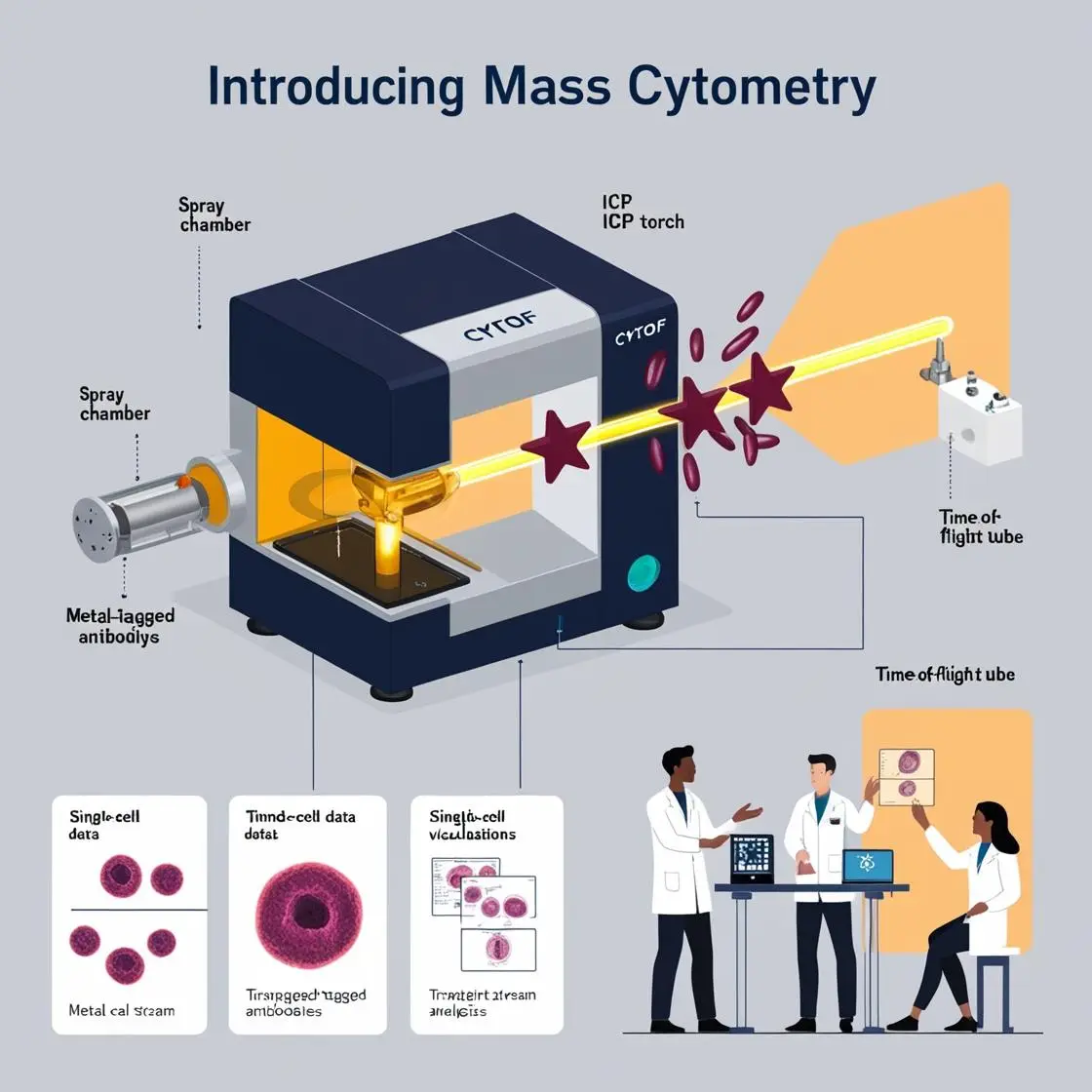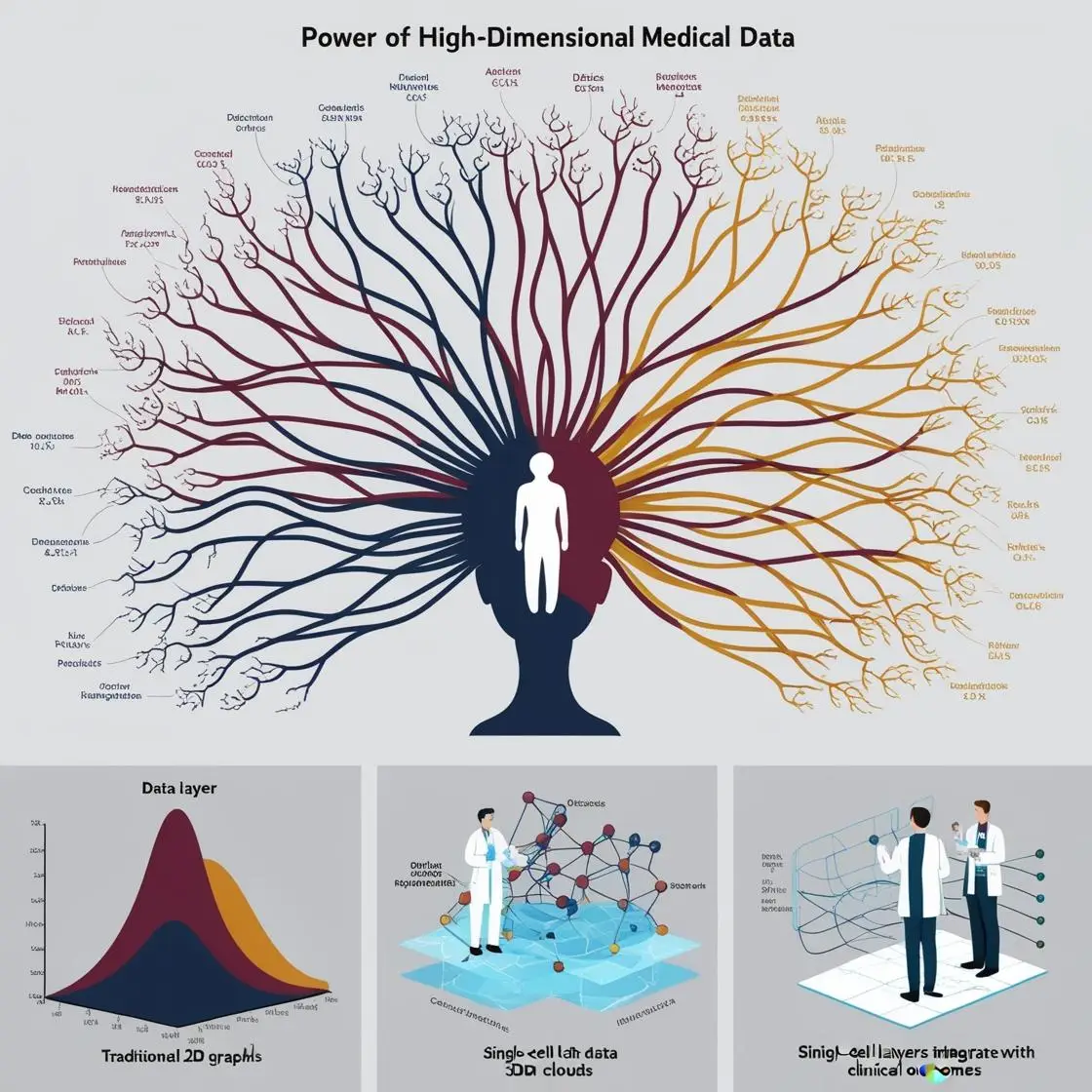Well, dear reader, we’ve come a long way together, haven’t we? From the microscopic world of single cells to the vast landscapes of human health and disease, our journey through the realm of mass cytometry has been nothing short of extraordinary. But before we hang up our lab coats and put away our pipettes, there’s one last frontier we need to explore – and it’s a doozy.
Welcome to the wild west of ethics in the age of high-dimensional single-cell analysis. Buckle up, because this is where things get really interesting.
Privacy and Data Protection: When Your Cells Know More About You Than You Do
Remember when you thought your browser history was the most personal data out there? Well, hold onto your DNA, because mass cytometry is about to make that look like child’s play. As Eric Schadt pointed out in his prescient 2012 paper, the privacy landscape in the era of big data is changing faster than you can say “HIPAA violation” (Schadt, E. E., 2012, Molecular Systems Biology, 8, 612).
Imagine a world where a single drop of your blood can reveal not just your current health status, but your potential future diseases, your response to drugs that haven’t even been invented yet, and maybe even your predisposition to like or dislike cilantro. Okay, maybe not that last one, but you get the idea.
The question is, who owns this data? Is it you? Your doctor? The researcher who analyzed it? The company that made the mass cytometer? It’s enough to make your head spin faster than centrifuged blood cells.
And let’s not forget about data security. In a world where even the most secure systems can be hacked, how do we protect this incredibly sensitive information? One can’t help but imagine a dystopian future where black market traders deal in stolen cell data instead of credit card numbers. “Psst, want to buy some T cell profiles? I’ve got a great deal on NK cells!”
Implications for Personalized Medicine and Health Insurance: When Your Cells Become Your Crystal Ball
Remember back when we talked about precision medicine and patient stratification? Well, it turns out that being able to predict your medical future with unnerving accuracy is a double-edged sword.
On one hand, personalized medicine could revolutionize healthcare, allowing for tailored treatments and prevention strategies. Imagine a world where your doctor prescribes medication based not on broad population studies, but on your unique cellular profile. It’s like having a bespoke suit, but for your health.
On the other hand, what happens when health insurance companies get their hands on this data? Suddenly, the genetic lottery becomes very real, and very consequential. Will we see a future where your premiums are based on your T cell subsets? Where having the wrong mix of NK cells makes you uninsurable? It’s enough to make you want to go back to the days when your biggest health worry was whether you were getting your five-a-day.
Potential Societal Impacts: When Your Cells Determine Your Destiny
As we’ve seen throughout this book, mass cytometry has the potential to impact everything from cancer treatment to understanding the aging process. But what happens when these scientific advances start to reshape society itself?
Could we see a future where job applications require a cell profile? Where dating apps match you based on your immune compatibility? Where schools admit students based on their cognitive potential as determined by their neuronal markers?
It sounds like science fiction, but then again, so did the idea of analyzing 50+ cellular markers simultaneously not too long ago.
The Road Ahead: Navigating the Cellular Superhighway
As we stand at the precipice of this new era, it’s clear that the ethical considerations of mass cytometry and high-dimensional single-cell analysis are as complex as the cellular systems we’re studying. We need ethical frameworks that can keep pace with the rapid advancements in technology, regulations that protect individual privacy without stifling innovation, and a societal discourse on how we want to use this powerful knowledge.
But here’s the thing – for all the potential pitfalls and ethical quandaries, the promise of mass cytometry and its applications is truly awe-inspiring. We’re not just talking about advancing science; we’re talking about fundamentally changing our understanding of health, disease, and what it means to be human.
From the intricate dance of immune cells to the complex world of the microbiome, from unraveling the mysteries of neurodegenerative diseases to peering into the earliest moments of life, mass cytometry has opened up worlds within worlds. It’s like we’ve been given a new pair of glasses, and suddenly we can see not just the forest and the trees, but every leaf, every cell, every molecule that makes up the grand tapestry of life.
As we close this final chapter, it’s worth remembering that every great scientific advance has come with its share of ethical challenges. From the microscope to the genome sequencer, each new tool has forced us to grapple with profound questions about the nature of life and our place in the universe.
Mass cytometry and high-dimensional single-cell analysis are no different. They’re not just scientific techniques; they’re gateways to a new understanding of ourselves. And like all powerful tools, their impact will ultimately be determined not by the technology itself, but by how we choose to use it.
So here we are, at the end of our journey, but also at the beginning of a new one. The cellular frontier stretches out before us, vast and full of possibility. It’s exciting, it’s terrifying, it’s profound – and isn’t that just the most wonderfully human thing of all?
Now, if you’ll excuse me, I need to go check my T cell counts. You never know when that information might come in handy in our brave new cellular world.




